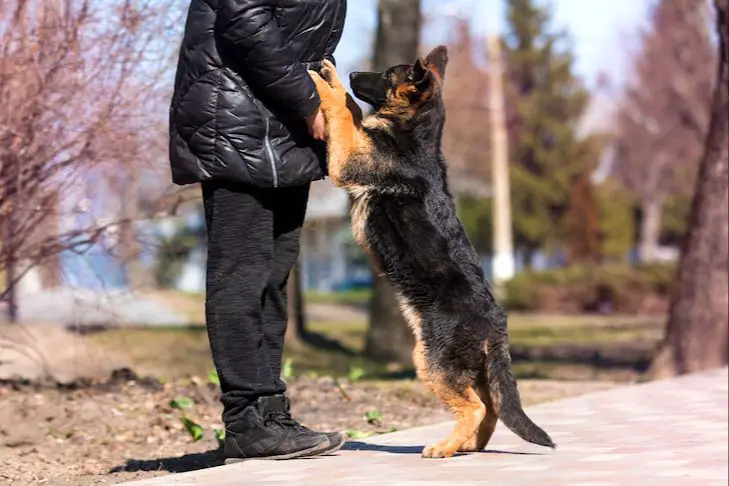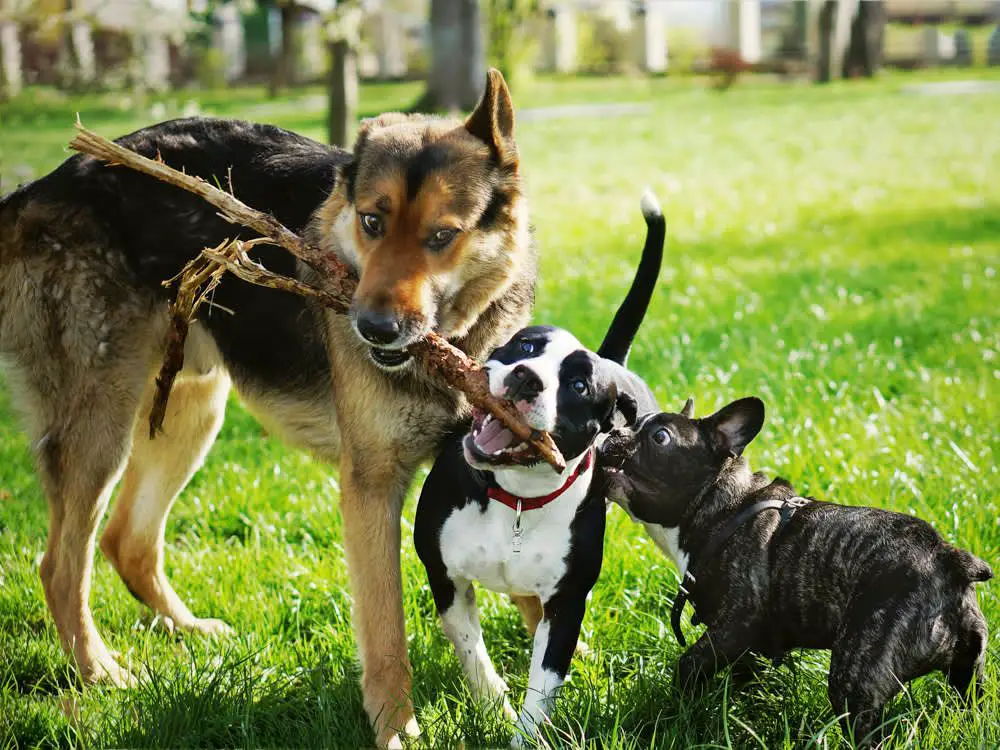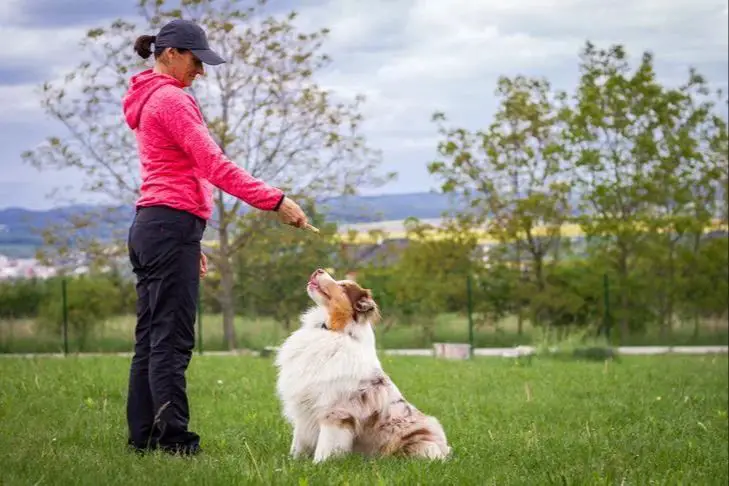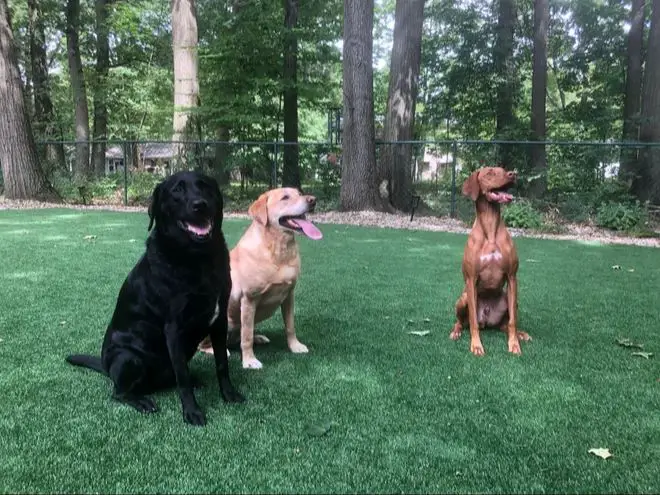Introduction
Dog parks are a popular place for our four-legged friends to run free, play with other dogs, and enjoy being out in nature. But these open play spaces come with risks as well. Some studies estimate that over 50% of dogs exhibit problematic behaviors after spending time at dog parks.
Dogs, being naturally social creatures, can quickly pick up habits from other pups. While most dog parents hope their furry friends will learn positive traits like sharing toys and getting along with new dogs, the unfortunate reality is they often adopt negative behaviors instead.
In this article, we’ll explore the types of bad habits dogs can develop at dog parks and what owners can do to curb them.
Common Bad Habits

When it comes to bad habits picked up at the dog park, some common culprits typically come to mind. These undesirable behaviors can range from frustrating to dangerous.
Jumping up on people is a frequent issue. When dogs jump on each other during play at the park, they can assume it’s acceptable to jump on humans as well. This can scare children or knock over elderly individuals.
Nipping or biting too hard during play is another problem behavior. Dogs may get overexcited and carried away when playing roughly with other dogs. They can then try to interact the same way with humans, not understanding we have much more delicate skin.
Begging is a bad habit where dogs whine, bark, or paw at humans for food. When dogs are fed treats frequently at the park by various people, begging can become an ingrained response anytime they see humans with food.
Humping and mounting is a common but embarrassing and inappropriate behavior that can develop at dog parks when dogs aren’t neutered/spayed. Dogs that pick up this habit may inappropriately direct it toward other dogs or even human legs.
Some dogs learn to be fearful or reactive to other dogs after having bad experiences. They may resort to growling, snapping, or fighting with dogs that approach them as a result.
Why Dogs Pick Up Bad Habits

Dogs are highly social animals that naturally learn from observing and interacting with other dogs. At the dog park, they are exposed to many behaviors exhibited by the dogs around them. If certain unwanted behaviors are common and normal at the park, dogs may pick these up through mimicry and repetition.
For example, if barking is frequent and uncontrolled, a dog may start barking more often to join in. Or if dogs jump on people at the entrance, a dog may learn that this jumping gets attention. Dogs are also opportunists looking for rewards, so they may pick up habits that are accidentally reinforced by owners or other park visitors.
If an owner laughs or gives attention when their dog picks up a bad habit from another dog, this teaches the dog that the unwanted behavior results in a reward. The lack of structure and rules at dog parks compared to a home environment also means dogs feel more freedom to repeat behaviors without consequences.
Owners’ Role
Many times, owners inadvertently reinforce and enable bad habits picked up at dog parks. Owners may fail to correct inappropriate behaviors, laugh them off, or even reward them with treats or play. This sends the message that the habits are acceptable or even desirable.
Without clear rules and structure at home, dogs receive mixed signals about what’s allowed. Permissive owners who lack leadership and a strong bond with their dog won’t motivate them to unlearn bad habits from the park.
Setting rules, redirecting unwanted behaviors, and rewarding good ones is key. Owners must take an active role in shaping their dog’s conduct. Leaving it up to the dog park itself usually leads to picked up problems at home.
Risk Factors
Certain factors can make a dog more prone to picking up bad habits at the dog park.
Age
Puppies and adolescent dogs that are still developing may be more impressionable and likely to mimic bad behaviors from other dogs. Older dogs can also be set in their ways and have a harder time breaking habits.
Breed
Some breeds are more predisposed to behavior issues based on genetics and instinct. For example, herding breeds may obsessively chase or nip other dogs. Terriers may be prone to picking fights. High energy breeds get overstimulated easily.
Socialization History
Dogs that are undersocialized and unfamiliar with playing politely with others are more likely to develop bad manners. Insufficient socialization in puppyhood can contribute to this.
Intact vs Fixed
Intact male dogs are more inclined to demonstrate aggressive, dominant behaviors. Intact females in heat can trigger reactivity in males. Neutered/spayed dogs avoid this hormonal influence.
Prevention Tips

There are several ways dog owners can help prevent their dogs from picking up bad habits at dog parks:
Obedience Training
Investing in basic obedience training is one of the best ways to prevent bad behavior. A well-trained dog is more likely to listen and respond properly to commands in distracting environments like dog parks. Training builds respect and establishes you as the pack leader.
Set Rules and Boundaries
Set clear rules for your dog when going to the park. For example, teach them to come when called, not to jump on other dogs or people, and not to bark excessively. Be consistent in enforcing these rules.
Supervision
Closely supervise your dog at the park, especially when interacting with other dogs. Watch their body language for signs of fear, anxiety, or aggression. Be prepared to intervene at the first sign of trouble.
Correction
If your dog starts exhibiting a bad habit, correct them promptly and calmly. For example, if they start jumping, give them the “off” command. Praising good behavior is also key.
Alternatives to Dog Parks
If you’re concerned about your dog picking up bad habits at the dog park, there are several alternative options for exercise and socialization that reduce risks while still providing enrichment.
Private playgroups with known, vaccinated dogs can give your dog regular playmates in a more controlled setting. Rotating small groups of friendly dogs in someone’s home or backyard lets them socialize safely. An experienced trainer can oversee initial meetings to ensure good play style matches.

One-on-one playdates with another dog provides supervised time together without the risks of a pack environment. Take them on walks or to enclosed areas where their interactions can be monitored.
Structured classes and daycare with an emphasis on appropriate play reduce behavior issues. Trainers reinforce manners and intervene if inappropriate behavior arises. The schedule provides both physical and mental exercise in a tailored setting.
These options let your dog gain the benefits of play while reducing risks from unknown dogs. With some effort finding suitable playmates or programs, you can provide enriching alternatives to the unpredictable dog park.
Signs of a Problem
Attending dog parks with poorly behaved dogs can lead to your dog picking up bad habits. Here are some common signs that your dog may be developing poor behaviors after visiting dog parks:
Aggression – Your dog may start displaying aggressive behaviors like growling, snapping, or biting when interacting with other dogs or people. This is a very serious issue that needs to be addressed immediately.
Reactivity – Your dog may become overly excited, aroused or reactive in the presence of other dogs. They may bark, lunge or whine excessively when seeing other dogs, even from a distance.
Ignoring commands – Your once well-trained dog suddenly starts ignoring commands or has difficulty focusing on you when other dogs are around. This could indicate they are practicing ignoring you at the park.
New fears – Some dogs can become hand-shy or fearful of unfamiliar people or dogs after bad experiences or excessive bullying at dog parks. They may cower, hide or act timid in new situations.
While dog parks can be fun outlets for socialization, any negative changes in your dog’s behavior could be indicative of problems. Being alert for signs of poor habits developing allows you to take steps to correct the behavior early on.
Re-training Techniques
If your dog has already picked up an undesirable behavior, the good news is that it can be re-trained with time, patience and consistency. Here are some of the most effective techniques for re-training a dog to stop bad habits:
Positive Reinforcement
This involves rewarding your dog with treats and praise when they display the behavior you want to encourage. For example, if your dog jumps up, turn and ignore them. When they sit calmly, reward them. This helps reinforce the desired behavior.
Desensitization
If your dog is reacting to a trigger like other dogs, gradually expose them to the trigger from a distance. Reward calm behavior and slowly decrease the distance as they learn the trigger is not a threat.
Professional Help
For serious behavior issues like aggression, seek help from a certified dog trainer or behaviorist. They can assess your dog and create a tailored training plan using techniques like counter-conditioning.
Re-training takes time and consistency, but being armed with the right techniques can help get your dog back on track to being a well-mannered companion.
Conclusion
Dog parks can certainly lead to dogs developing bad habits if owners are not proactive. Picking up poor manners like jumping, nipping, and rough play are real risks, especially for impressionable puppies. However, with proper training and socialization, plus monitoring your dog at the park, these issues can be avoided. Consider training classes or seeking alternatives like play dates if problems emerge. Most importantly, be an advocate for your dog and don’t allow negative behaviors to become ingrained. With smart management, dog parks can be an enriching experience that avoids long-term bad habits.
The key is staying alert to signs of problems and addressing them early through re-training. If you arm yourself with knowledge and take a proactive approach, your dog can benefit from the socialization of dog parks without picking up troublesome behaviors. Be your pet’s leader, not just an observer, and you can steer their experiences in a positive direction.